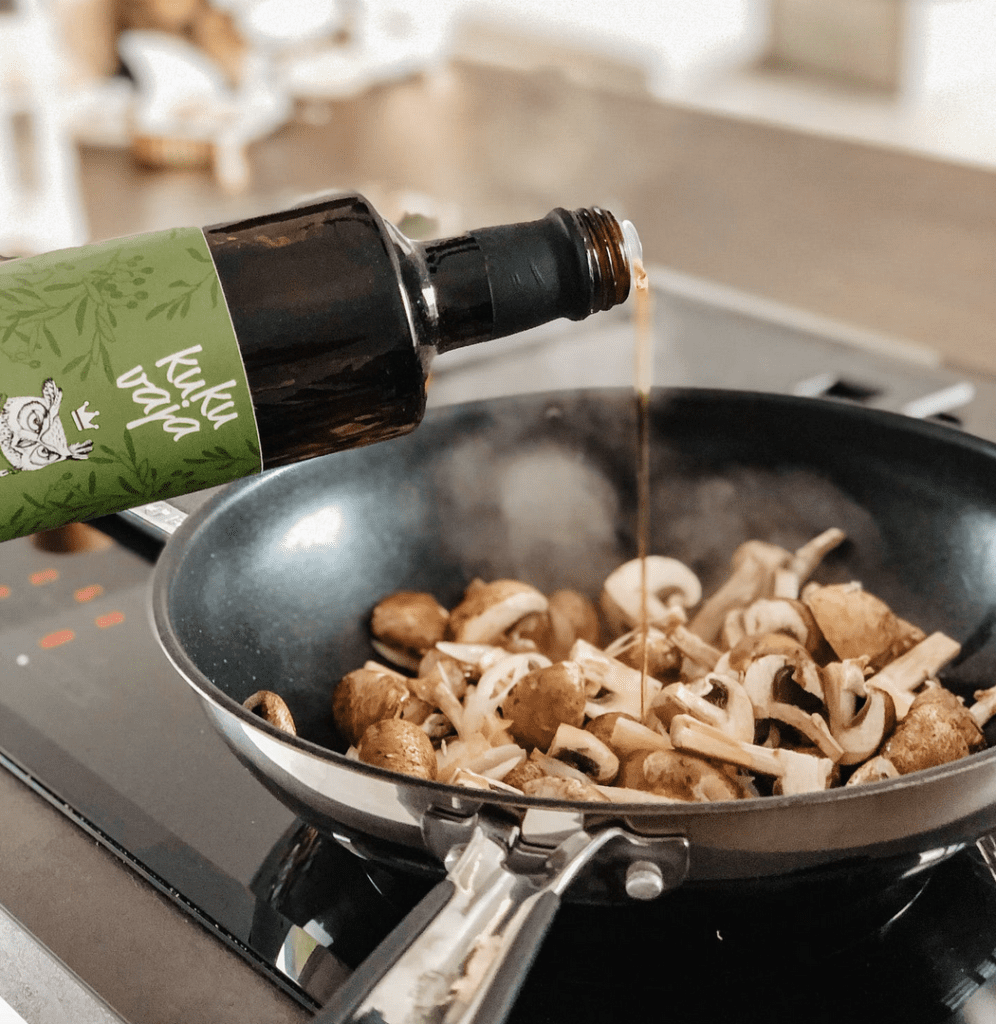Search Posts
Recent Posts
- Vinny Paz to be inducted TODAY into the International Boxing Hall of Fame – CES Boxing June 7, 2025
- In the News… quick recap of the week’s news (6.7.25) June 7, 2025
- Burn with Kearns: Strong without the spend: How scraps became strength tools – Kevin Kearns June 7, 2025
- Rhode Island Weather for June 7, 2025 – Jack Donnelly June 7, 2025
- How to advocate for threatened properties: The Heritage Alliance of Pawtucket June 7, 2025
Categories
Subscribe!
Thanks for subscribing! Please check your email for further instructions.

Ask Chef Walter: Cooking oils tutorial – Chef Walter Potenza
by Chef Walter Potenza, contributing writer
Image, top, attribution via Ashwini
Whether drizzling olive oil over a fresh salad, frying with avocado oil, or baking with coconut oil, the right oil can transform a meal into a memorable experience.
Friends:
Flavors and knowledge reader and supporter Margareth C. from Joplin, Missouri, inquired about cooking oils and what to know about them. Here we go, Margareth!
Cooking oils are fundamental to culinary practices worldwide, bringing unique flavor, texture, and nutritional profile. The variety of cooking oils available today is vast, ranging from traditional options like olive oil and butter to more modern choices like avocado and coconut oil.
Understanding the differences between these oils, their best uses, and their health implications can help you make informed decisions in the kitchen.
One of the most widely recognized cooking oils is olive oil, particularly extra virgin olive oil. This oil is appreciated for its rich flavor and high monounsaturated fats, which are popular and support heart health by reducing harmful cholesterol levels. Olive oil is ideal for salad dressings, low to medium-heat cooking, and drizzling over finished dishes. However, its low smoke point makes it less suitable for high-heat methods like deep-frying.
In contrast, refined olive oil has a higher smoke point and can handle more heat, though it lacks the robust flavor of its extra virgin counterpart. Another popular oil is coconut oil, which has gained a reputation for its unique composition of medium-chain triglycerides (MCTs).
The body metabolizes These fats differently, potentially providing a quick energy source. Coconut oil is solid at room temperature and has a distinct tropical flavor, making it a favorite in baking and sautéing. However, its high saturated fat content has sparked debate among health experts, with some cautioning against excessive consumption due to potential links to increased cholesterol levels.
Oils with high smoke points are essential for high-heat cooking methods like frying. With its mild flavor and impressive smoke point, Avocado oil is an excellent choice for searing, grilling, and roasting. It is also rich in monounsaturated fats and vitamin E, contributing to its heart-healthy profile.
Similarly, peanut oil, commonly used in Asian cuisine, is another high-smoke-point oil that adds a nutty flavor to stir-fries and deep-fried dishes. Its stability at high temperatures makes it a reliable option for frying.
Canola oil, derived from rapeseed, is another versatile option with a neutral taste and a moderate smoke point. It is low in saturated fat and contains a precious balance of omega-3 and omega-6 fatty acids, making it a heart-healthy choice for baking, sautéing, and frying. However, concerns about its production process have been raised, often involving genetic modification and chemical extraction, leading some consumers to seek out cold-pressed or organic versions.
Conversely, butter and ghee (clarified butter) are cherished for their rich, creamy flavors. Butter is a world staple in baking and other applications and adds depth to sauces and sautéed dishes, but its high saturated fat content should be used in moderation. With its lactose and casein removed, Ghee has a higher smoke point and is suitable for higher-heat cooking. It is also a key ingredient in many traditional Indian dishes.
Seed oils, such as sunflower, safflower, and grapeseed oil, are often praised for their light flavors and high smoke points. These oils are typically high in polyunsaturated fats, particularly omega-6 fatty acids. While omega-6s are essential for health, an imbalance between omega-6 and omega-3 intake can contribute to inflammation.
Moderation in use and consumption are key when incorporating these oils into your diet, and more importantly continue to document yourself for better options.
Health considerations are paramount when choosing cooking oils. Oils high in unsaturated fats, such as olive, avocado, and canola oil, are generally considered healthier due to their potential to improve cholesterol levels and drastically reduce the risk of heart disease. Conversely, oils high in saturated fats, like coconut and palm oil, should be consumed sparingly, as excessive intake may negatively impact cardiovascular health.
Trans fats, primarily found in partially hydrogenated oils, are particularly harmful and should be avoided altogether. They are linked to increased risks of heart disease and other chronic conditions. In addition to health, the environmental impact of oil production is an essential factor to consider.
Palm oil, for instance, is widely used in processed foods and has a high smoke point, but its selection and production are often associated with deforestation and habitat destruction. Opting for sustainably sourced palm oil or alternative oils can help mitigate these tragic environmental concerns.
In conclusion, dear readers, the choice of cooking oil depends on the intended use, flavor preferences, and health goals. A well-stocked kitchen might include a variety of oils to suit different cooking methods and dishes. By understanding the properties and implications of each oil, you can elevate your culinary creations while making choices that align with your health and values. Whether drizzling olive oil over a fresh salad, frying with avocado oil, or baking with coconut oil, the right oil can transform a meal into a memorable experience.

___
Chef Walter is featured HERE every Sunday with his regular Ask Chef Walter column!

Meet Chef Walter! There is a constant, recognizable thread in the career of Walter Potenza to elevate the level of Italian culinary culture in the United States. Besides his unquestionable culinary talent and winning business perspective, Chef Walter has been a relentless educator with passion and knowledge who defeats stereotypes. His life, career, and values are a model, an example to follow by any chef of Italian gastronomy working outside Italy.
Chef Walter appears regularly on National and International Networks such as Food Network, ABC, CBS, NBC, RAI, FOX, and Publications such as NY. Times, Washington Post, Wall Street Journal, Food & Wine, Saveur, Gourmet, and several Italian media outlets. And now “RINewsToday”!

